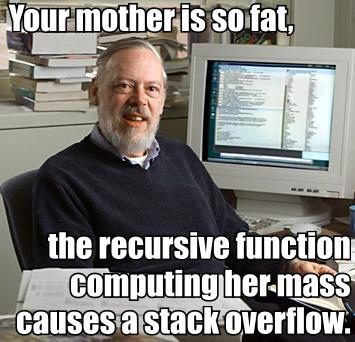 Previously, I described the distress I felt at a recent SABS conference. No doubt, hearing presenters so radically misuse Scripture was the low point, especially since those scholars call their work “contextual interpretation.” (Their terminology gives people wrong impressions about genuine contextualization)
Previously, I described the distress I felt at a recent SABS conference. No doubt, hearing presenters so radically misuse Scripture was the low point, especially since those scholars call their work “contextual interpretation.” (Their terminology gives people wrong impressions about genuine contextualization)
Now, I’ll share a high point from the week. Athalya Brenner-Idan (University of Amsterdam-Tel Aviv University), gave one of the most concise and significant rebuttals to so-called “contextual interpretations” I’ve ever seen. (She was the opening speaker for the international meeting for SBL).
To appreciate her remarks, you need to keep in mind a few things:
* At SBL and similar meetings, you will find few fans of full-orbed evangelical theology. Many people are all too willing to find reasons to skewer conservative positions.
* She is speaking directly to a room full of liberal theologians who sing the praises of “contextual interpretation” (in the misguided sense mentioned previously).
* She is an accomplished Jewish scholar who can’t be accused of “imperialism” (as are American and European Protestants).
Here are some highlights of her talk.
Four Things Need to Change
Dr. Brenner-Idan told the crowd that it’s time for “some self-examination and self criticism.” She addressed four issues.
1. GEOGRAPHICALIZATION
After affirming the importance of diversifying in biblical studies, she bemoaned, “the geographical factor has been foregrounded as a cultural determinant (which it certainly is) too emphatically.”
In other words, people shouldn’t assume that geography determines a person’s worldview. Someone from Singapore or Beijing could be as much or more “Western” as a person who grows up in Los Angeles. Likewise, people in America might, in many ways, be more “Eastern” than many from East Asia.
So, we should stop judging “diversity” or the quality of someone’s contribution simply based on geography.
2. POLITICIZATION
She candidly states,
“Settling political accounts through reading the bible for your own present needs or aspiration is not a so called contextual reading; it is an old enough exercise that falls under using, abusing and misusing the bible.”
In case people missed the point, she adds,
“Claiming to be contextual but walking your opinions/beliefs backwards into the bible in order to buttress them is not valuable. Neither is it new.”
In street terms, this is the academic equivalent to a, “Ah nah, no she di’int” moment or perhaps ripping on someone’s mama. The room was full of people who spend their entire careers committing one or more of these four errors.

3. VIEWING THE BIBLE AS THERAPY
Dr. Brenner-Idan notes that “contextual readings” often emphasize the results of “readings undertaken by bible scholars together with lay members of their respective communities.” As a result, “the message that comes out of the exercise is how ‘empowering’ the reading was for community members…how ‘therapeutic’ it was.”
(Tell me this doesn’t sound familiar among Protestants.)
While such things can benefit people, she concludes, “But it is, finally, a faith event. It doesn’t tell us something new about the bible: it tells us much about the lay community that reads it and uses it as medicine….” Such readings, she says, do not belong “in biblical studies or in contextual biblical studies.”
4. AN “(ALMOST) EVERYTHING GOES” ATTITUDE
Finally, she recounts her experience as an editor and a committee member of the ISBL Contextual Interpretation Seminar:
“I’ve seen many proposals/papers that simply state: this is my context––religious, social, geographical, nations, etc.––and this is how we read text x in my community.
My response is: Interesting. But this, again, is not what we’re looking for. We want to know in what ways reading the bible in the light of your present life, and vice versa, illuminates both back and forth; and the reading should follow the tools of the trade. Then it will be helpful and has value way beyond your own context.”
Don’t Reject GENUINE Contextualization
I’ll tell you one reason why her comments are especially meaningful for me. One reason some evangelical theologians are hesitant to embrace contextualization (the kind I write about) is because they confuse sound, biblical contextualization with the baseless conjectures above that go by the name “contextual interpretation.”
They fear the danger of leaving the safety of their tradition and learned perspectives. However, rejecting genuine contextualization for fear of bad contextualization does not solve the problem. It simply creates other problems.
Don’t forget: all theology is contextualized.
It cannot be otherwise (as I explain in One Gospel for All Nations). We all contextualize –– for better or worse–– the moment we read the Bible.
I’m thankful for Dr. Brenner-Idan’s boldness. A friend of mine went to her afterwards and expressed his appreciation. She was moved with encouragement. She said she “needed that” because she knew her comments would most likely evoke much hostility from others in the room.
What do you think? Have you ever seen bad contextualization and, as a result, were hesitant yourself to try contextualization?












